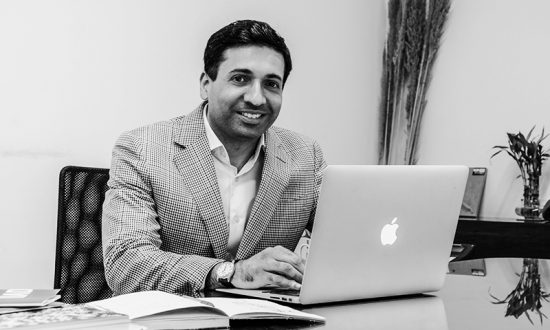A first-generation entrepreneur, Dr Jitin Chadha is the Founder Director of Indian Institute of Art and Design and Indian School of Business and Finance. Dr Chadha was awarded his Doctorate in Finance in 2011, in a grand ceremony chaired by the HRD Minister, Kapil Sibal and Prof. Dinesh Singh, Vice-Chancellor, Delhi University.
As we move into 2021 and India’s efforts to tackle the impact of the global pandemic continues, the Union Budget for 2021-22, presented by Finance Minister Nirmala Seetharaman offers a sense of reassurance and a glimmer of hope. The focus on Higher Education under ‘Reinvigorating Human Capital’, one of the six pillars of the Budget, is progressive in its outlook and vision. It reinforces many of the initiatives put forward by the National Education Policy (NEP) which was approved in July last year. A qualitative strengthening of educational institutes by incorporating the multifarious facets of the NEP points towards a new and flexible understanding of education in the country. Apart from creating 15,000 ‘exemplar schools’ under the larger framework of establishing hybrid educational institutes, the budget also proposed to set up a Higher Education Commission of India. This will not only mean changes and reforms in accreditation, funding and overall regulation but will also allow for a fluid learning environment. In this first ever digital budget presentation what comes across is the fact that the world as we know it has changed and it is vital that we keep abreast with these changes and the new demands of these uncertain times. Reworking traditional concepts of what education has meant in the past is more important than ever before. The focus on multidisciplinary learning that the budget emphasises is, therefore, particularly significant. Not only will it imply a greater focus on collaborative work in today’s globalised world but it will also mean an increased synergy and knowledge transfer between leading Indian and international institutions. This paves the way for a plethora of avenues which will be open to the youth of the nation ensuring that they have access to an education that is holistic, balanced and an amalgamation of the best features of what the Indian educational system has to offer and those that can be taken from institutes across the world.
Although the budget allocated for school education for this financial year at an estimate of almost ₹55,000 crore has seen a decrease as compared to the previous year, it is important not to overlook the impact of the COVID-19 pandemic on the socio-economic landscape of the nation. Additionally, the focus on blurring geographical boundaries when it comes to education is a welcome change especially in times where our interdependence has come to light and our reliance on digital mediums has increased. As India moves towards becoming a ‘knowledge’ economy and society, more and more young Indians are likely to aspire for higher education. Certain problems being faced by the Higher Education system in India includes rigid separation of disciplines, less emphasis on learning outcomes and a lack of focus on innovative teaching and research work, resulting in less than desired standards of undergraduate education. The NEP which the Budget highlights addresses these issues and provides achievable solutions for them. Higher education should ideally lead to knowledge creation and innovation thereby contributing to a growing national economy. As we enter a new year, and a new era, the budget bodes well for the future of the country, one where we shall be equipped to deal with the challenges the coming times will present us with both in the field of education and beyond it.




